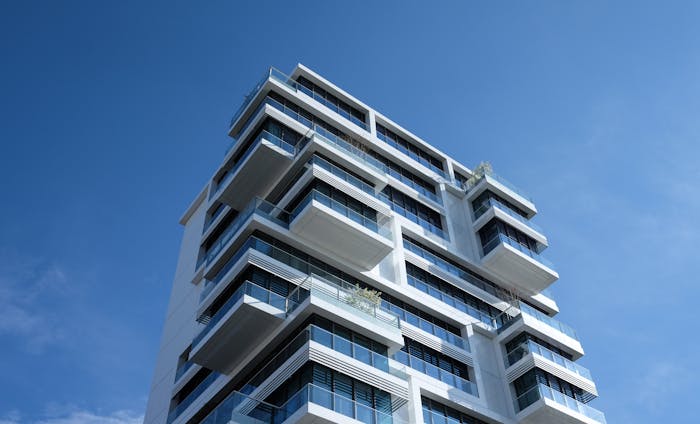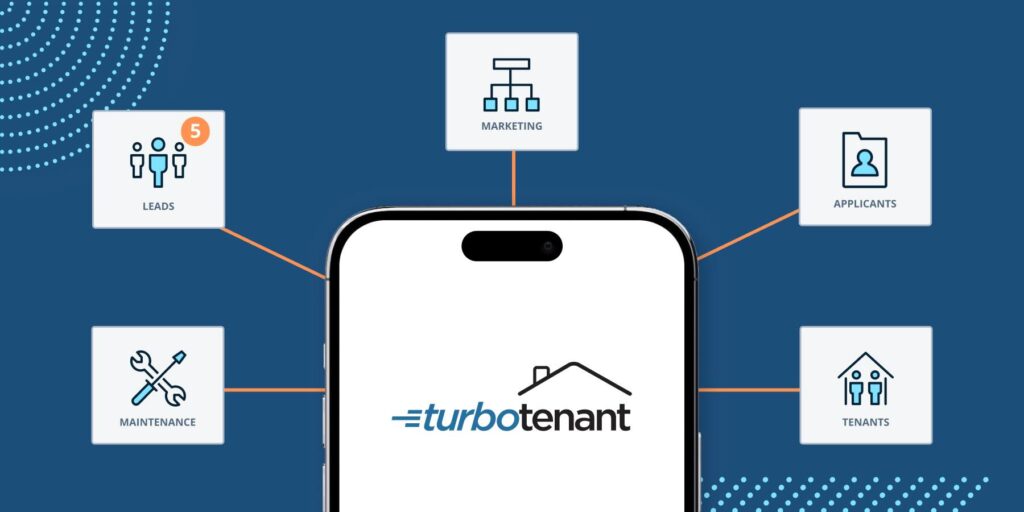9 min read
How to Get Property Management Clients (Lead Gen Methods)
With such a competitive and fast-paced real estate market, especially rental markets, knowing how to get property management clients is crucial for starting and...

Condo property management, on its face, is exactly what it sounds like — overseeing one or many units in a condominium building or complex.
Because condos and managing associations have special rules and requirements, managing a condo can feel very different from managing commercial or non-condo residential properties. But while it may feel complex to start, effective condo property management can turn a complicated rental experience into smooth sailing for tenants and owners.
In this guide, we’ll examine the property management responsibilities of condo associations and owners, what makes a good condo property manager, and the everyday responsibilities of managing these properties.
A condominium, or condo, is a type of property ownership in which individuals own a specific unit in a shared building or complex. Since there are typically many owners within one building, the common areas and amenities are collectively owned and maintained. With so many people involved, managing a condominium can quickly become complicated or overwhelming.
Condo property management can be a powerful solution for condo owners. It provides professional oversight of the day-to-day operations of an individual unit (or units), common areas, and shared spaces while acting as a go-between for owners, tenants, and condo associations.
The condo association, or (HOA), is an elected board of residents and owners that sets the community’s rules and works with the budget of the entire complex. While the HOA sets the policy for the condo property, the property manager is typically responsible for executing those policies.

Condos present unique challenges when it comes to property management. Therefore, property managers have a number of important duties to ensure a complex’s effective, efficient, and functional operation.
Between handling maintenance and repair tasks, keeping track of the finances for the condo and the HOA, complying with local, state, and federal laws, and coordinating with residents, the life of a condo property manager can be quite busy.
Here are the typical responsibilities condo property managers will encounter.
Condo property managers are essential in coordinating all sorts of projects within individual units or in common areas. Coordination duties include ensuring smooth execution, communicating between tenants, owners, and contractors, and keeping projects as close to budget as possible.
When the HOA plans and budgets a project, the property manager oversees the logistics — engaging contractors or repair crews, negotiating costs, managing contracts, and keeping progress on track. The goal of a property manager in these situations is not only to ensure the work is done on time and within budget but also that the work is done at the lowest inconvenience possible to all residents.
Condo property managers will also report on the progress of each project to the HOA, keeping the organization fully up-to-date statuses while addressing any issues or challenges as they arise.
Maintaining a budget and handling finances are key elements of a property manager’s job. By overseeing the financial operation of a condo complex, the property manager will ensure that funds are allocated appropriately and that required HOA or other fees are collected on time from residents.
Property managers will also work with the HOA to create annual budgets with smart, knowledgeable forecasting for the future, incorporating costs for scheduled and yearly maintenance, utilities, and any needed projects.
This is done while providing regular updates to the HOA board and maintaining transparency with residents, as condo owners are important stakeholders in the long-term well-being of the condo complex.
In the realm of property management, condominiums require a deft hand to ensure that in-unit and out-of-unit needs are properly met, safety standards are upheld, and aesthetics are properly considered.
For shared spaces and common areas, property managers will schedule and oversee cleaning, landscaping, and necessary inspections as part of their day-to-day duties. They’ll also handle repairs and yearly maintenance to plumbing, HVAC, and electrical systems to ensure good working order.
The property manager can also handle in-unit maintenance needs, especially when the maintenance or repairs would affect multiple units or shared walls, floors, or ceilings. Individual owners are often responsible for repairs that only impact their specific unit. Managers might also assist owners in selecting the right contractor, ensure all repairs meet HOA standards, and assist with entry to a unit if the owner or tenant is away.
Condo property managers are typically responsible for a few levels of compliance.
At the most basic level, they help enforce and ensure compliance with HOA rules and guidelines. An HOA’s bylaws are typically adopted by the board or through a voting process that residents can participate in. Once passed, property managers work to ensure that those bylaws are adhered to at all times.
On a broader level, property managers will also ensure that the condo complex and its units legally comply with local, state, and federal laws. This could mean enforcing anti-discrimination policies and fair housing laws, safety standards and occupancy limits, environmental regulations, and zoning requirements.
Depending on the situation, condo property managers often act as intermediaries between local authorities, residents, owners, and the HOA when a legal dispute arises.
It’s often the property manager’s job to maintain clear and open lines of communication between tenants and residents, property owners, and the HOA in order to build trust and community harmony. Residents need to be aware of HOA meetings, changes to the bylaws and operation of the complex, maintenance updates, and any regulations that residents need to be aware of.
HOA boards often adjust the complex’s rules, and residents must be kept apprised of these changes on an ongoing basis. This can happen through direct notice from the property manager through posted notices, direct mail, or community newsletters.
Additionally, property managers should let residents know when maintenance, repair work, or construction in common areas or units could cause a noise disturbance or utility interruption to minimize inconvenience.
While it can be uncomfortable for everyone involved, disputes between residents are sometimes unavoidable. With each condo unit existing as an individually purchased home, the property manager will often become the de facto mediator in disputes to maintain harmony within the complex.
Property managers often manage noise disputes, parking issues, disagreements over common areas, or any other challenges that might arise over time. They will work to ensure that any violations of HOA bylaws are cleared up or enforced and that all residents understand that shared spaces are just that — shared amongst everyone who lives there.
When disputes cannot be resolved informally by the property manager, they may escalate the issue to the HOA board so that they can rule on the issue in an attempt to satisfy all parties.

With so many variables and personalities at play, condo property management can be made significantly less tricky and overwhelming by utilizing property management software in day-to-day operations.
By keeping as much information and tracking as centralized as possible, property managers can bring a level of efficiency and organization to their jobs that was previously impossible.
To help reach these goals, TurboTenant is a free property management software that gives landlords and property managers a high level of control and tracking of their workflow.
TurboTenant offers:
Condo property management has never been easier. Sign up for a free TurboTenant account today!
Condo property management companies are typically responsible for overseeing maintenance and repairs, managing finances and budgets with the HOA board, enforcing community rules, and coordinating communication between residents.
An HOA board is a group of elected owners who make the decisions and regulations for the condo community. A property management company is responsible for the community’s day-to-day operations and enforcement of the by-laws enacted by the HOA board.
9 min read
With such a competitive and fast-paced real estate market, especially rental markets, knowing how to get property management clients is crucial for starting and...
8 min read
Condo property management, on its face, is exactly what it sounds like — overseeing one or many units in a condominium building...
7 min read
Finding the ideal commercial or residential rental property can be challenging for renters, as it may only meet some of their specific...